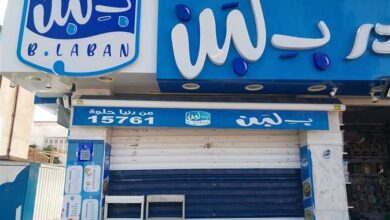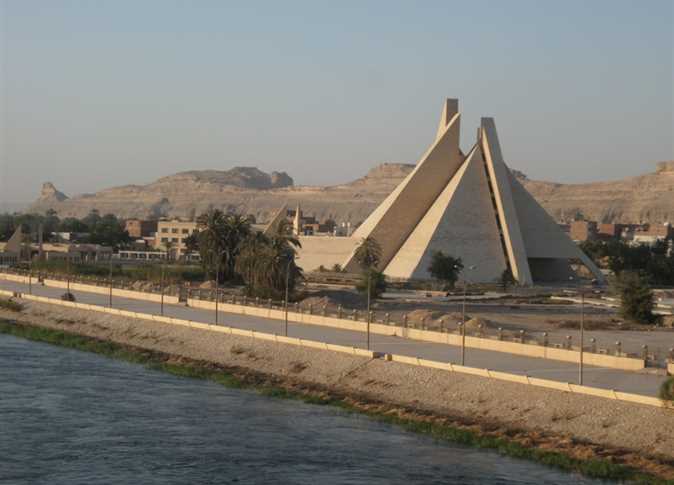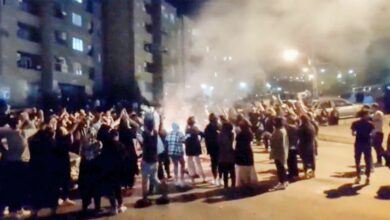Political leaders warned Sunday of a possible escalation of dissent if protesters’ demands for swift change and justice remain unheeded, arguing that the prime minister’s pledges in a televised speech on Saturday fell short of defusing discontent.
“We are in the midst of a dangerous situation. Events warn of a possible explosion; more people might engage in protests and we might have more strikes,” Farid Zahran, a leader of the Egyptian Democratic Social Party, told Al-Masry Al-Youm. “Those in charge should take things seriously.”
Tens of thousands of Egyptians rallied in Tahrir Square on Friday, expressing disenchantment with the interim government’s performance and a issuing a plethora of demands, including the immediate overhaul of the Ministry of Interior, quick and fair trials of ex-officials, and purging government agencies of the remnants of former President Hosni Mubarak’s regime. The same demands were raised by crowds of protesters in cities across the country.
Thousands have been holding a sit-in in the square since Friday, blocking car access and sleeping under tents pitched on the grass.
In his address to the nation on Saturday, Prime Minister Essam Sharaf announced that courts responsible for trying those accused of killing protesters and profiteering will only focus on these cases, which will expedite the process.
Sharaf also said that he had ordered the interior minister to dismiss all police officers accused of murdering protesters during the 18-day uprising. He further said that he asked the minister of social solidarity to examine portfolios of social justice including heath, education, housing, salaries and prices.
But none of these pledges convinced protesters to halt their sit-in.
The April 6 Youth Movement issued a statement Saturday night acknowledging Sharaf’s decision to free courts to focus solely on investigating charges against accused officials, but the group blamed the prime minister for failing to set a precise time frame for these trials.
The group vowed that the sit-in will continue until the government purges the judiciary, the media and other state institutions; imposes a minimum and maximum wage; provides unemployment compensation; holds public trials of former officials accused of killing protesters and corruption; and halts military trials of civilians.
The statement also criticized Sharaf for failing to take precise measures to prosecute Mubarak for killing protesters.
“If the demands are not met, the sit-in might turn into civil disobedience and strikes in different sectors,” said Abdel Ghaffar Shokr, a co-founder of the unregistered People’s Socialist Alliance Party.
Sharaf’s speech also provoked reactions from Abdel Moneim Aboul Fotouh, formerly a longtime Muslim Brotherhood leader and now a presidential candidate. Abouel Fotouh slammed Sharaf for failing to meet “people's ambitions” and for offering “painkillers” rather than “radical” treatment for Egypt’s problems.
“We call on those in power, represented by the Supreme Council of the Armed Forces (SCAF) and Sharaf’s cabinet, to pay attention to the revolution's primary demands, which include bread, freedom, human dignity and social justice,” Abouel Fotouh wrote in a statement.
Mohamed ElBaradei, former head of the UN nuclear watchdog and also a presidential candidate, wrote on Twitter: “The gap between the people and the rulers is widening. The demands of the revolution should be heeded unequivocally and clearly.”
SCAF has made no comment or posted any statement on its official Facebook page since protests began on Friday, an attitude that some say might stir more dissent.
“It is wrong to insist on not responding or communicating with the people,” said Ahmed Shokri, an Al-Adl Party leader. ”This slowdown and lack of response will give the impression that no one is listening and this will provoke more people to take to the streets.”
Since Mubarak’s ouster, SCAF leaders have stressed a narrative that says they chose to side with the revolutionaries and abandon Mubarak during the uprising, affirming their commitment to achieving the peoples' demands.
Their performance, however, has failed to satisfy most political forces, who have accused the generals of monopolizing the decision-making process during the transitional period and failing to instate a real democracy.
“This laxity will make people raise the ceiling of their demands and this will exacerbate the tension between them and the SCAF,” said Shokri.
During Friday’s protests, this disenchantment was expressed in banners: “The people want to oust SCAF” and “Sorry, SCAF, we lost patience with you.”
The protest was the first large show of force for protesters since an 8 April demonstration demanding the prosecution of Mubarak and his former aides. Days later, Mubarak and his two sons, Gamal and Alaa, were arrested on grounds of profiteering and killing protesters. Since then, Mubarak has been held in custody in a military hospital in Sharm el-Sheikh and his sons in Cairo’s Tora prison. Many activists have demanded that Mubarak be transferred to Tora hospital to receive the same treatment as a lay prisoner.
“Mubarak’s case has become quite an issue,” said Shokri. “Mubarak should be transferred to the prison hospital and a delegation should be allowed to visit the prison to make sure that his sons are there. I personally do not have doubts but people need to be assured about that.”
In recent weeks, there has been growing suspicion that Mubarak and his sons are no longer in custody.




